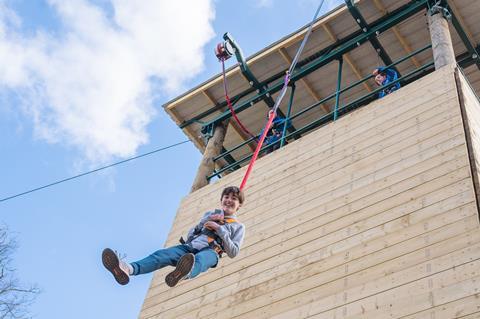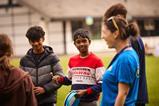Dr John Allan, head of impact and breakthrough learning at PGL Beyond, discusses how residential programmes deconstruct stereotypes and enable young men to be themselves.

We’re now several months on from the meeting at Downing Street convened by the Prime Minister to discuss ‘rethinking adolescent safety’, attended by youth charities, young people and the creators of the Netflix series Adolescence, which played a significant role in driving the topic into the spotlight. As the noise dies down, the issue is still very much at large.
The universally acclaimed British crime drama portrayed the catastrophic impact of exposure to school bullying and social media centred on incel subculture, and once again brought to the forefront the urgent issue of ‘boys in crisis’. Following the meeting, it was also announced that, with the backing of the PM and the support of youth charity Tender, the Netflix drama will be made available to secondary schools, free of charge, along with teaching materials.
Among the surrounding commentary was a call from Gareth Southgate, the ex-England Men’s Football Manager, for better male role models. Southgate publicly raised concerns of young men being in crisis due to callous toxic influencers. He cited the need for young men to have personal resilience built through supportive relationships with significant others and, crucially, less time spent online.
Undoubtably, toxic imagery and messaging is increasingly accessible to young people through social media. However, one of the UK’s leading charities for young people, the Children’s Society, argues that toxic masculinity has been around for centuries, exemplified by societal pressure on men to think they need to have a strong physical presence and hide their emotions.

Within my own research, I have found evidence of gender role conflict and outdoor activity interventions which have helped young males realign perceptions of masculinity and build authentic relationships.
Published in the British Journal of Guidance and Counselling, almost 500 male students on entry into university reported elevated levels of resilience (their ability to withstand adversity) compared to their female counterparts. Contrary to the conventional understanding of resilience, their capability to adapt to new challenges – unlike that of females – was linked with poorer prospective academic performance. This mask of bravado or pseudo resilience, which is especially prevalent during adolescence, may project confidence yet hide a troubling sense of isolation.
My published article in Sports reported that male and female students’ resilience was enhanced following attendance at outdoor residential programmes, specifically designed to aid their transition into Higher Education. More nuanced investigations, however, found that male students’ resilience was less heightened, and in some cases significantly reduced. Many individuals had advantageously readjusted their perceived strengths following engagement in a range of activities in which they experienced more shared vulnerability.
Carefully facilitated perceived risk taking across a range of PGL Beyond adventure programmes, necessitate that all young men are free to be themselves in a novel, multi-sensory environment where they develop regard for each other’s well-being. Such mutual reliance and positive role modelling, require that they learn to balance the needs of others with their own. Allowing young men to own their responses to unfolding circumstances helps them to see the bigger picture and acknowledge others’ perspectives in becoming prepared for whatever challenges come along.
For more information about PGL Beyond, go to www.pglbeyond.com.














No comments yet